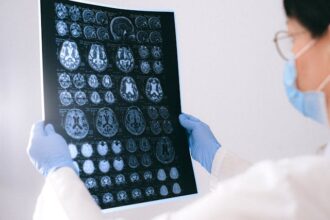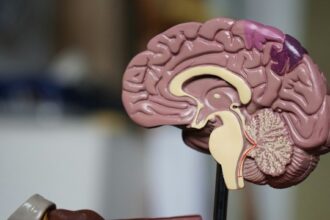Tag: cognitive neuroscience
Engaging in intellectually stimulating occupations could potentially offer protection against the onset of dementia in later stages of life
A recent groundbreaking study, conducted by researchers from Columbia University Mailman School of Public Health, the Columbia Aging…
Biomarkers in the middle-aged brain can forecast cognitive health in later years
Researchers have suggested that the brain in middle age could offer insights into one's cognitive health in later…
Treatment through brain stimulation could enhance the well-being of older adults suffering from depression and anxiety
In a recent study led by the University of Florida, a noninvasive method of brain stimulation showed promise…
Impoverished areas associated with increased risk of dementia and accelerated brain ageing
Residing in less affluent areas is associated with both quicker brain ageing and a heightened risk of developing…
Scientists identify the root cause of ‘brain fog’ associated with Long COVID
A collaboration between researchers at Trinity College Dublin and FutureNeuro has led to a groundbreaking revelation that sheds…
Research uncovers how the brain adapts to cognitive deterioration in older age
Researchers have discovered that alternative regions or networks within the brain can assume the responsibilities and functions of…
Studies reveal that active social involvement enhances the ageing process optimally for older adults
A comprehensive study observed over 7,000 Canadians, who were middle-aged and older, for about three years to explore…
Research uncovers the most compelling proof yet of the brain’s capacity to offset cognitive deterioration linked to ageing
Researchers have uncovered the most compelling evidence to date that the human brain can adapt to counteract the…
Strategies for Maintaining Brain Health
The human brain is an extraordinary organ, boasting around 100 billion nerve cells that collaborate seamlessly to enhance…
Individuals in their nineties who have a fear of falling participate in less physical activity, as reflected by activity tracker data that averages about 3,000 steps daily
This study focused on how very old adults, specifically those in their nineties (nonagenarians), move and spend their…
What causes the decline in spatial memory among some older adults?
Ageing manifests in various forms, notably through alterations in memory functions. Interestingly, the rate of memory decline isn't…












